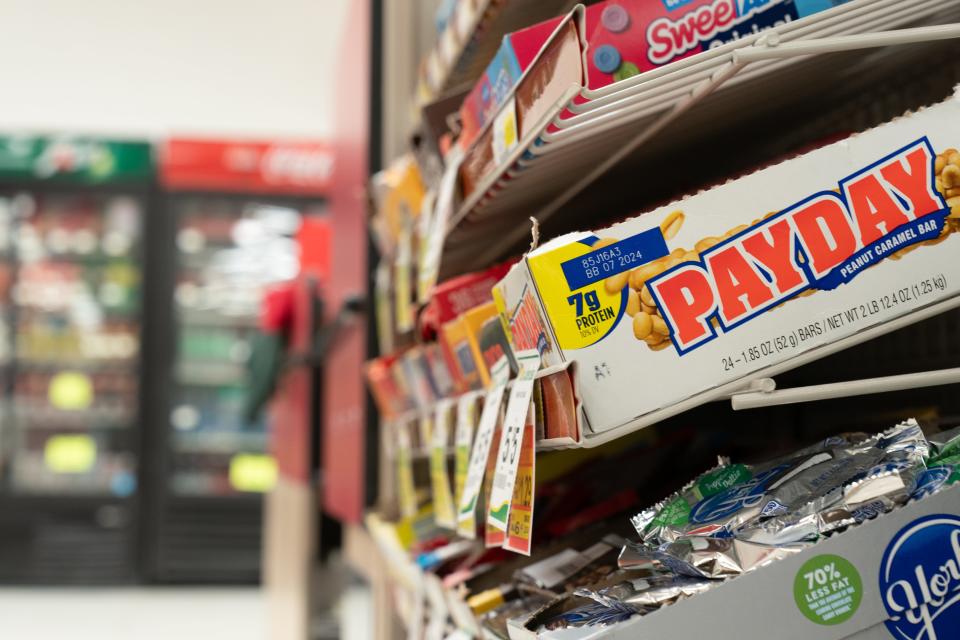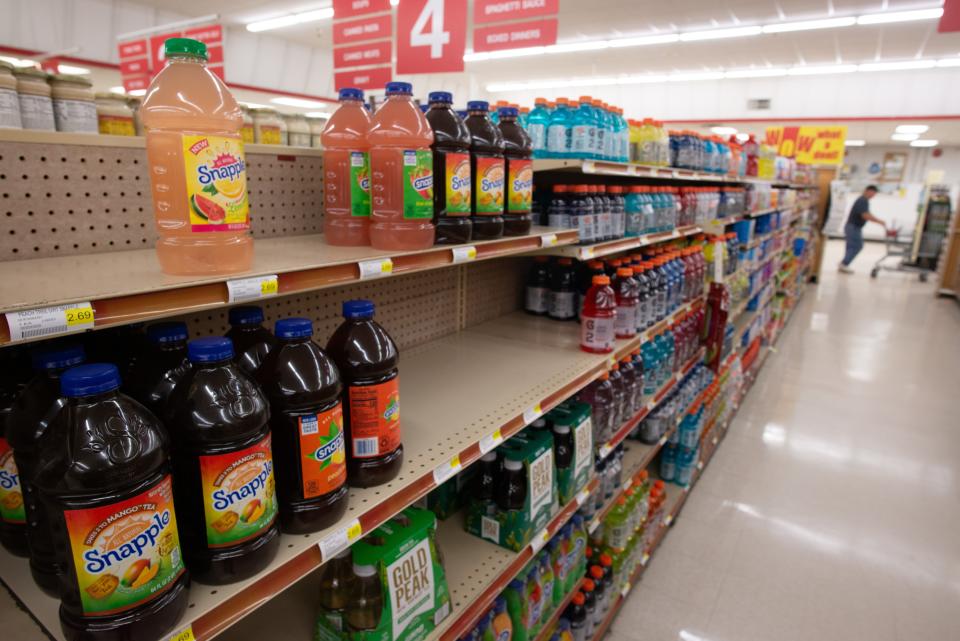Kansas bill would ask feds for permission to ban candy and soda purchases with food stamps
Kansas lawmakers are considering a likely ill-fated move to ask permission from the federal government to ban purchases of candy and soda using food stamps.
House Bill 2673 would require the Kansas Department for Children and Families to request a waiver for the Supplemental Nutrition Assistance Program prohibiting food assistance benefits from being used to buy "candy" and "soft drinks."
House Welfare Reform Committee chair Rep. Francis Awerkamp, R-St. Marys, requested the bill's introduction. The committee had a hearing on it last week.
The primary proponent was Roy Lenardson, of Florida, who works for the Foundation for Government Accountability and its lobbying arm, Opportunity Solutions Project.
Lenardson acknowledged that the federal government is unlikely to approve such a waiver but said submitting a request every year "will spark a much-needed nationwide conversation about how food stamps are inflating the obesity crisis."

"What is nutritious about Coca-Cola, Mountain Dew, Cheetos and Twinkies?" he asked. "And how are sugary drinks and candy helping solve the issue of food insecurity? I don't know. But food stamp benefits should buy milk not Mountain Dew. That's our position."
The only other testimony in support of the bill came from Nicholas Reinecker, who not infrequently offers legislators his opinions on bills, who argued that "this bill represents a worthwhile first step in the prevention of disease and reigning in the waste of taxpayer money when it comes to public nutrition assistance."
Food stamp bill opposed by businesses and child advocates
Lenardson predicted opposition, as currently "Pepsi, Frito-Lay, Coca-Cola and Little Debbie rake in massive profits from taxpayer-funded food stamp benefits." He said junk food is backed by the money to lobby lawmakers.
Lobbyists did line up to oppose the bill, including lobbyist for the business industry, for grocery stores, for beverage companies and for convenience stores. Also opposed were lobbyists for food banks, advocates for children, community advocates and the state child welfare agency.
Under the bill, candy is defined as "a preparation of sugar, honey or other natural or artificial sweeteners in combination with chocolate, fruits, nuts or other ingredients or flavorings in the form of bars, drops or pieces," and candy "does not include any preparation containing flour and shall require no refrigeration."
Soft drinks are defined as "nonalcoholic beverages that contain natural or artificial sweeteners," but soft drinks do "not include beverages that contain milk or milk products, soy, rice or similar milk substitutes or beverages that are greater than 50% vegetable or fruit juice by volume."
Critics say those definitions could result in several foods and drinks being prohibited that aren't the conventional ideas of candy and soda pop.

Jon McCormick, of the Retail Grocers Association, said grocery stores don't want to be "the food police." Gerber apple juice and Ocean Spray cranberry juice both meet the soft drink definition, and candy is similarly "fraught with impossible administration.
Candy could technically include granola and breakfast bars, said Erin Melton, of Kansas Action for Children.
Local retailers would be responsible for enforcing the prohibition, likely meaning cashiers at the grocery store.
Brian Posler, representing a trade association of fuel retailers, said convenience stores may stop accepting SNAP entirely instead of dealing with the headache.
Karen Siebert, of Harvesters, said shoppers in the Kansas City metro may cross state lines to buy their groceries, hurting Kansas businesses.
The Kansas Chamber and the Greater Topeka Chamber of Commerce argued that it would be burdensome on small businesses to administer while also hurting large food manufacturers employing Kansas workers.
Derek Hein, of the Kansas Beverage Association, told lawmakers to "keep big government out of our grocery carts" as it "should not be in the business of deciding what people eat or drink." The restrictions don't work anyway, he said, and won't improve public health.
The bill would make it harder for families to provide food, said Haley Kottler, of the Kansas Appleseed Center for Law and Justice.
"Why are we targeting the consumption of SNAP recipients?" Kottler asked. "The basis for this bill is misguided stereotypes with an outcome of shaming or punishing hardworking Kansans who have sought assistance."
Jason Alatidd is a Statehouse reporter for the Topeka Capital-Journal. He can be reached by email at jalatidd@gannett.com. Follow him on X @Jason_Alatidd.
This article originally appeared on Topeka Capital-Journal: Kansas could target food stamp purchases of candy and soft drinks

